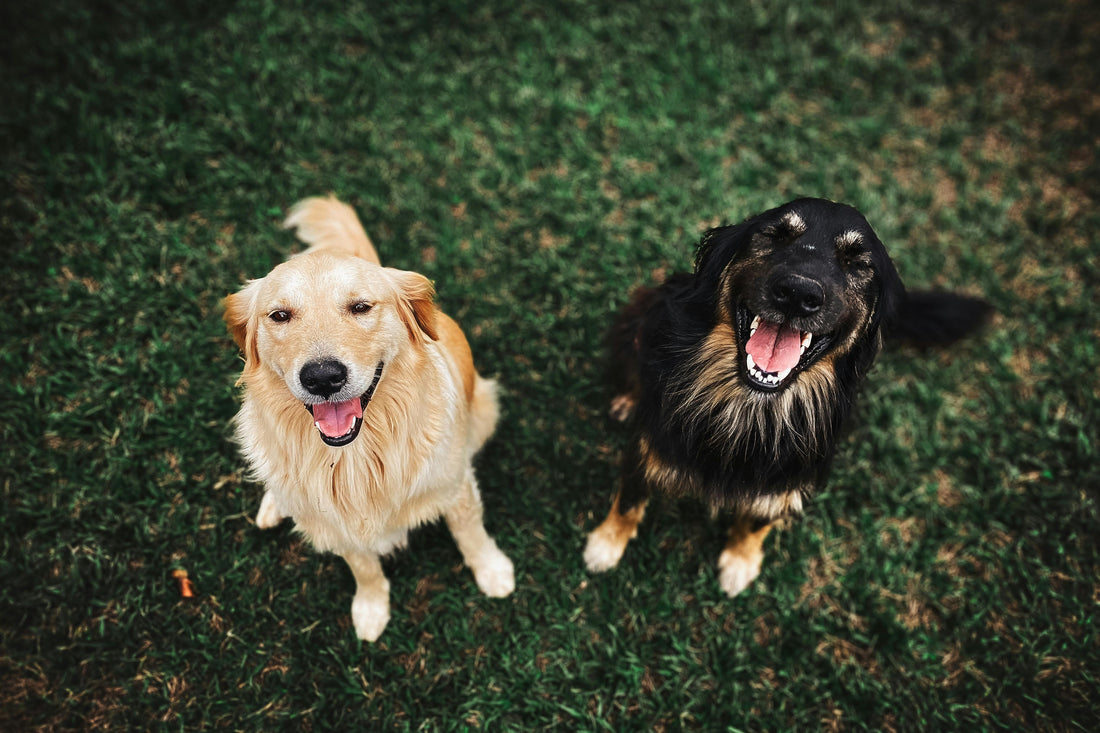
How to Build a Complete Daily Routine for Your Dog’s Health
In addition to yummy treats, regular grooming, and vet checks, one of the best gifts you can give to your furry buddy is consistent dog daily care. Whether you’re a happy parent of a curious puppy, an energetic adult canine, or a wise senior dog, our blog offers a quick guide on how to take care of a dog daily, support their long-term health, and stay sane.
Feed for Life Stage Needs

Photo by Rarnie McCudden from Pexels
The daily dog care checklist won’t be complete without proper meals. Your task is to provide your pooch with nutritious meals that fit their current stage of life:
- Puppies (0–12 months). These cute tail-waggers grow so fast! Provide them with calorie-dense food. It should be rich in healthy fats and protein. 3–4 small meals per day are enough at this stage. One of the key dog health tips here is to pick puppy-specific formulas with calcium for bone growth and DHA for brain development of fur babies.
- Adult canines (1–7 years). Two meals a day are perfect at this age. You should choose well-balanced, quality food based on their activity level and breed size. Teacup breeds may need fewer calories, while bigger, active ones need more.
- Senior wise fluffballs (7+ years). These buddies may require fewer calories. However, each meal should contain joint-supporting nutrients like omega-3 fatty acids and glucosamine. It’s better to provide two smaller meals daily and watch their weight (obesity = health issues!).
Burn Energy!

Photo by Tanya Gorelova from Pexels
One of the top human and dog health care tips is to stay active no matter what. According to the “Effects of Physical Activity on Dog Behavior” research, “physical activity, especially if carried out through sports, helps cope with frustration and maintain self-control.” At Healthywoof.com, we recommend choosing daily activities based on a canine’s age, breed, health issues, etc.
- Puppies are full of energy! But…they get tired really fast. Start with a couple of short play sessions throughout the day (5-15 minutes each). To build confidence and focus, add basic training exercises to the pup’s routine.
- Adult dogs need 30-60 minutes of exercise. Make fetch, walks, agility work, or swimming part of daily dog care routine. Some canines (Pointers, Spaniels, Retrievers, Collies, German Shepherds) are bred for sporting or hunting exercises, so keep this in mind. As we’ve mentioned above, well-exercised pooches are less likely to show destructive behaviors.
Wise seniors slow down, but still regular movement is a must. It helps to avoid stiffness and stay mobile. It’s better to take them for gentle walks, do some mental stimulation like puzzle toys, and have short playtime. This tandem helps keep them sharp and fit.
Just Groom It

Photo by Goochie Poochie Grooming from Pexels
Grooming is more than just a dog dental hygiene. It’s an essential ritual that includes checking ears, eyes, and skin to catch issues like infections as early as possible. Here’s what you should do for your four-legged companion:
- Puppies. Help these petite pups get used to grooming as early as possible. If they have long hair, brush it every day. Bathe monthly (unless they are very dirty!) as part of dog hygiene.
- Adult dogs. Have a regular grooming schedule for your furry buddy. Brushing helps reduce shedding and keeps the coat healthy and beautiful. Bath every 4-6 weeks (based on breed) using dog hygiene products and trim nails regularly.
- Senior woofers. They may suffer from sensitive skin or arthritis. Thus, grooming can be a pretty uncomfortable process. Buy gentle brushes, stay away from harsh shampoos, and groom in calm and short sessions.
Healthy Teeth, Happy Dog
Unfortunately, many dog parents tend to overlook oral care. However, it is an essential part of keeping your mutt healthy. In our catalog, we have a wide assortment of vet-approved products to help your dog’s teeth be pearl white.
- Puppies. Even if their baby teeth are going to fall out, introduce tooth brushing as early as you can. Thus, you’ll avoid resistance later. Pick a soft brush and a vet-approved toothpaste.
- Adult pups. Even brushing a few times a week can help prevent dental issues. Pick water additives, dental chews, and powders to support their mouth health.
- Seniors are more prone to having problems with their teeth and gums. Your task here is to brush their teeth regularly, visit the vet regularly, and purchase gentle products that prevent pain, tooth loss, and infections. One of the most important dog dental health tips is to watch for signs like stinky breath, drooling, pawing at the mouth, or difficulty eating – these may signal something is wrong.
Remember that every pooch is different, and so should be their daily health routine. With consistent care, love, and attention to details, your furry friend will enjoy a long, healthy, and happy life.